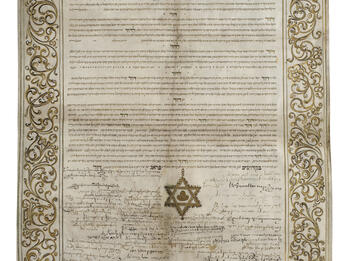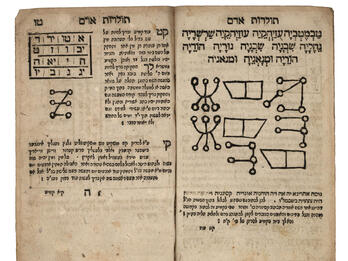Isaac Karo
Born in Toledo, Isaac Karo was famed for his rabbinic erudition, as well as his knowledge of secular studies, particularly medicine. Having taught at the yeshiva in Toledo, he founded a yeshiva in Lisbon and was joined there by his family after the 1492 expulsion of the Jews from Spain. However, they did not find respite for long. After the Jews were expelled from Portugal in 1497, Karo wandered extensively, and his sons perished. He eventually settled in Constantinople. There he composed a commentary on the Pentateuch, Toldot Yitzḥak (The Generations of Isaac; 1518, the only one of his works printed in his lifetime). His other writings include responsa, talmudic novellae, a commentary on Pirke Avot (not extant but quoted by others), and a collection of homilies, ḥasde David (The Mercies of David). The homilies, for holidays and other occasions, mainly concern eschatological topics, including immortality of the soul, reward and punishment, and resurrection. Isaac Karo adopted his nephew, Joseph, the author of the Shulḥan ‘arukh (Set Table). Although Isaac Karo longed to reach the land of Israel, nothing is known of his fate after 1518.



